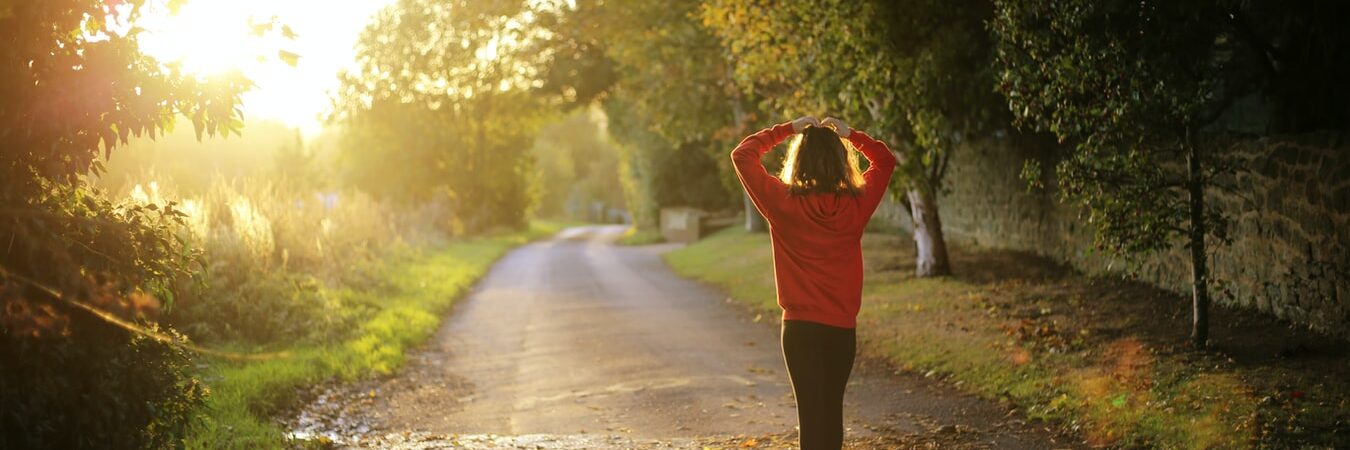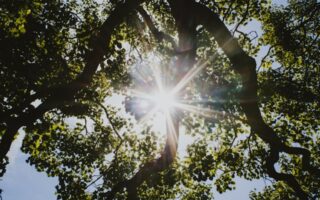After John the Baptist is beheaded, Jesus withdraws to a deserted place by himself but is followed by a great crowd. The people in the crowd were not even wearing masks! When Jesus sees the many people that have followed him, he leaves his desired solitude behind and attends to the needs of the crowd, healing the sick and feeding vast numbers of people with only five loaves of bread and a couple of fish (Mt 14:13-21). Though I am never followed by large crowds of people and cannot heal the sick or offer miraculous food, I easily relate to Jesus’s relationship to solitude in this passage.
Solitude is the space I retreat to when I need to process experiences in my life, a space of comfort, a space of prayer, a space of peace, a space of dawning understanding. I am never in the space of solitude long before the demands of life come crashing through the door. When the pandemic hit, however, my relationship with solitude changed. When stay at home orders were issued, solitude, rather than the demands of life, became the intruder. I was forced into a much deeper and prolonged experience of solitude than I had ever experienced before. This changed the way I understood and experienced solitude.
Solitude is the word we use to recognize our solitary lives before God. Though we are born into families and live in communities, there are aspects of our lives known only by God, parts of ourselves unavailable to others and most likely even unknown to ourselves. In solitude we can experience great beauty, love, and profound communion with God, but we can also experience loneliness, fragility, vulnerability, incompleteness, dependence, poverty, anonymity, and emptiness. The harsher aspects of solitude often prevent us from entering solitude too deeply. From a distance we can see the beautiful, rich gifts solitude offers. Some of us are brave enough to dip our toes into solitude, to taste its sweetness, but most of us are not adventurous enough to willingly cross the fierce landscape of insecurity that lies between us and deep, prolonged solitude.
The pandemic forced me to walk a bit further into the fierce landscape of solitude than I had been willing to venture through my own volition. Distanced from work, from family, and from community, I found that the solitary walks I once treasured, became the source of feelings of isolation and loneliness. Instead of longing for rest and dropping into an exhausted deep sleep at night, I went to bed feeling incomplete, unaccomplished, unimportant, and genuinely anonymous. I longed for the demands of life to crash through the door and crush the walls of solitude that enclosed me. The pandemic has not ended yet, and though I have had some breaks from the intensity of forced isolation, I am still longing for the rhythms of life to return to normal.
Solitude is a significant aspect of the Christian tradition. Many of the deepest insights and the most profound wisdom I have read are written by those whose vocation is solitude. Those who dedicate themselves to a life of solitude are willing to walk a perilous path through deserts of uncertainty because they know the path leads to what Merton calls
the unspeakable beating of a Heart within the heart of one’s own life.
Disputed Questions
Thomas Merton
Merton knew that the perilous walk through solitude was not solely for the walker but for the body of Christ. Oriented to God and awakening to the truth within themselves, those practiced in solitude become homes for communion offering valuable gifts to and for the community. Solitude is experienced alone, but its gifts are for the community. Solitude and community are deeply relational.
The deeply relational nature of solitude became clear to me during the pandemic. I wrongly thought that though the pandemic required a distancing from community, my solitude would remain the same comforting home I had always known. My solitude would be unchanged, there would just be more of it. What I found instead was that cut off from the community, I felt the weight of my insecurity more fully. Furthermore, the sadness of the community suffering from sickness, from economic hardship, from loneliness and distance, crept into and shaped my solitary time. As the community was diminished by COVID-19, so too was my solitude.
Though my experience of solitude has become more painful and difficult during the pandemic, I continue to see the beauty of solitude. In fact, its gifts shine more brightly.
Solitude shapes the life of Jesus, informs the unfolding of his days. Withdrawing to a deserted place to pray alone was an ordinary aspect of his routine (Mk 1:35). On the night he is arrested, Jesus is easily found when he is praying in the garden of Gethsemane, because it was his custom to pray in solitude there (Lk 22:39). The gifts Jesus offers, gifts of healing, teaching, ministry, and communion with God are nurtured in solitude. There is a relationship in his life between solitude and community.
As disciples of Jesus, we are all called to nurture our capacity for solitude because in our solitude lies great hope for the community. In solitude, we learn that there our depths to ourselves, and spaces of profound communion with God beyond our imaginings. In solitude, we become more sensitive to the pain not only in our own homesick souls, but in the homesick souls of our broken communities. If we find a way to value even this painful sensitivity and bring it with us into our communion with God, we might hear more clearly, God’s call to our hearts. We might discover the gifts God has given each of us for the community, the gifts that are only ours to give.












